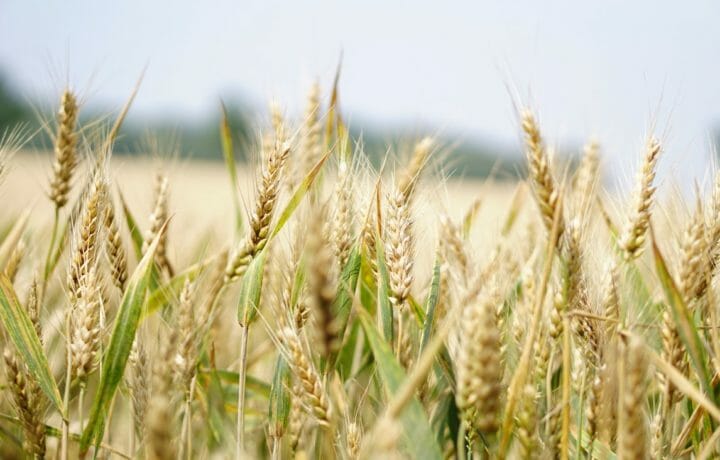The fertile regions in Ukraine have long been known as “the world’s breadbasket.” Russia’s blockade is keeping almost 300 ships from carrying grain exports through the Black Sea, leaving one of the key global trade routes virtually closed.
The Black Sea is bordered in the north by Ukraine, Turkey in the South, Russia and Georgia in the East, Turkey and Bulgaria and Romania in the West. Ukraine has gained a few notable maritime successes since Russia hostilities began in February of this year, but the Kremlin continues to remain more powerful in the northern Black Sea and has blocked Ukrainian ports.
Further complicating the issue, Russia has bombed bridges, keeping Ukrainian grain from moving across land. Around Ukraine, farmers navigate mines, traverse bombed bridges, and risk dangerous drop offs at overworked ports, patriotically sidestepping Russian blockades to move desperately needed grain.
Ukraine is the world’s fifth largest exporter of wheat. Analysts say that less than half of Ukraine’s harvest is likely to be exported this year, causing food inflation; making shortages far worse than they already are in severely dependent countries. Earlier this month, the UN’s World Food Program Executive Director David Beasley warned that hunger and the death of millions around the world will occur with Ukrainian ports blocked.
Ukraine’s severely damaged and strained infrastructure will not be able to handle the 30 million metric tons of corn, wheat and sunflower oil expected from this year’s harvesting, the Ukrainian government is saying. Further, regular farming cycles for harvesting, planting, and fertilizing have been disrupted.
German Development Minister Svenja Schulze blasted Putin over the food crisis on a recent Ukraine trip, calling on Russia to allow tens of thousands of tons of grain stuck in Ukrainian ports to be delivered. “It is Putin’s fault that many countries are now on the brink of widespread hunger,” Schulze stated, referring to the grain stuck in Ukrainian ports and Russian occupied Ukraine.
The War’s Effect on Commodity Markets
In recent weeks, the war has dealt a major shock to commodity markets. The World Bank’s latest Commodity Markets Outlook discusses the disruption of production and trade of several Russian and Ukrainian commodities, including fertilizers and grains. With an over 50% increase in various grain prices, runaway futures add to a previously tight commodities market due to pandemic-related supply constraints and demands.
However, wheat prices are down 10% since voices from the G7 to the United Nations started increasing pressure on Moscow to let Ukrainian grain come to market. Commodities traders are betting Russia’s President Vladimir Putin will listen to the growing pressure against the blockade.
Putin’s Response: Buy Russian
Putin is offering up several solutions for the West. First, buy grain from Russia (grain likely stolen from Ukraine’s occupied territories). According to the TASS news agency on Monday, Russian-controlled Ukrainian region of Kherson has begun exporting grain that was harvested last year to Russia. “…we have a lot of grain here. People are now partially taking it out, having agreed with those who buy it from the Russian side” said Kirill Stremousov, deputy head of the Military-Civilian Administration.
The second solution is for Moscow to provide a corridor for ships carrying food in return for the lifting of some Western sanctions. This solution is based upon Russian deputy foreign minister Andrei Rudenko’s statements during negotiations between Turkey, Ukraine, and Russia this past week.
Either solution is not palatable for the West. As leaders around the world look for a solution, proposals of a naval “coalition of the willing” to lift Russia’s blockade on Ukraine grain have begun. Lithuania’s Foreign Minister Gabrielius Landsbergis is proposing the creation of a naval mission involving the naval coalition for protecting Ukrainian ships from Russian missiles, enabling the movement of Ukrainian grains through the Black Sea.
With military ships and aircraft necessary to ensure ship movement, there are many potential ramifications. Most scenarios include NATO and the United States aiding and diving deeper into the conflict. The Lithuanian minister has already stated that the coalition of the willing would require countries with significant naval power to protect the shipping lanes. Landsbergis’ proposal has been cautiously welcomed by the UK, with their foreign secretary stating the UK could potentially send naval convoys.
Breaking the Black Sea blockade is clearly under consideration. But the action by NATO members would also be a clear escalation of their current involvement. But with the global bread basket under attack, it may be grain, not guns, that moves the needle for more countries to lend support or take action.




